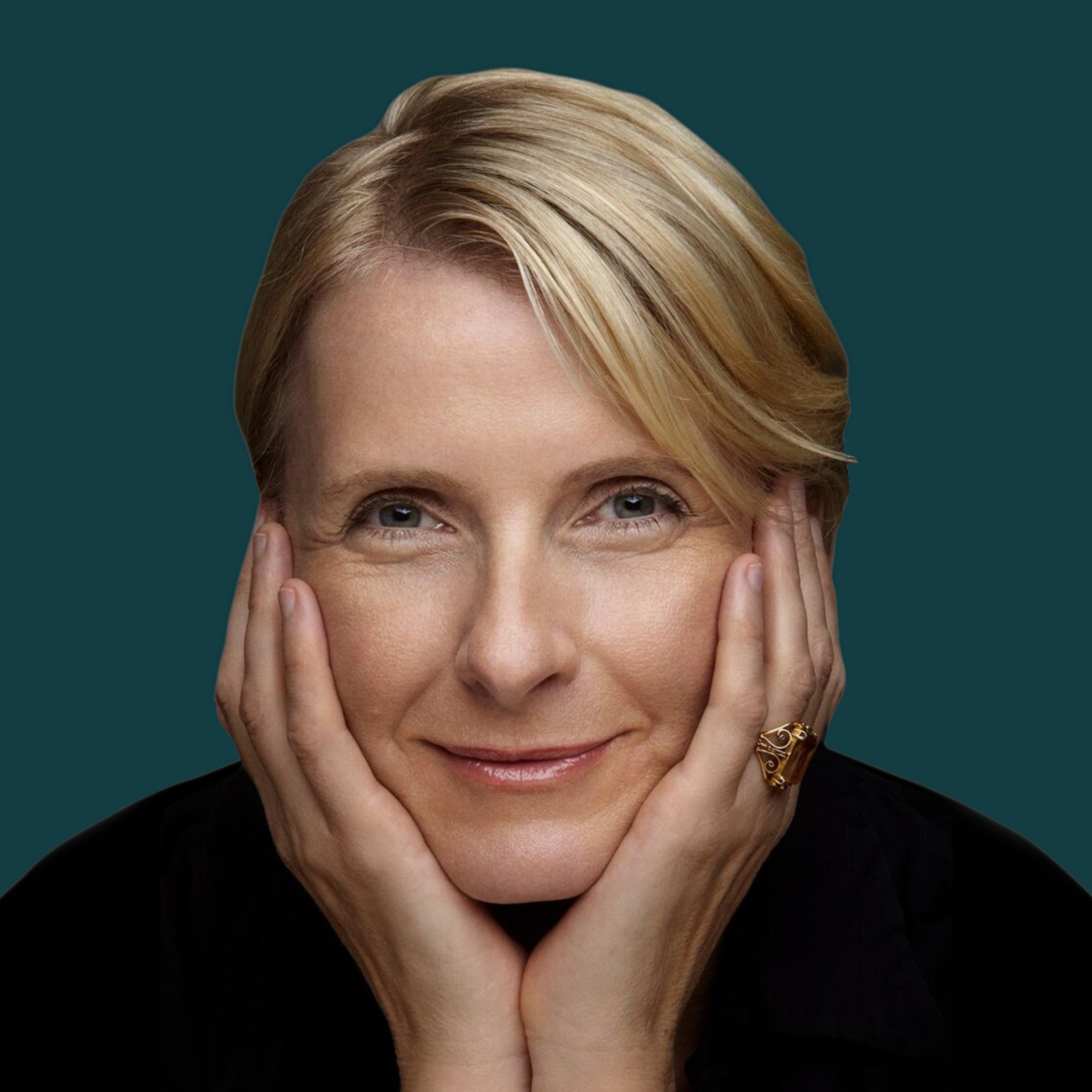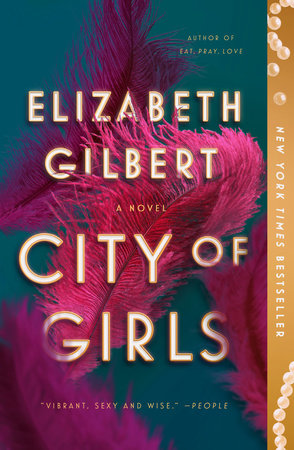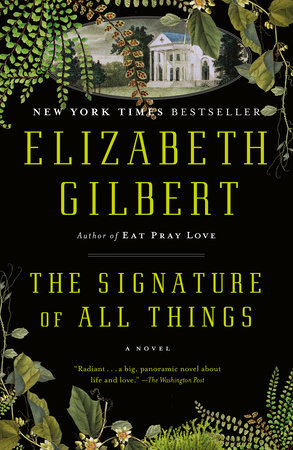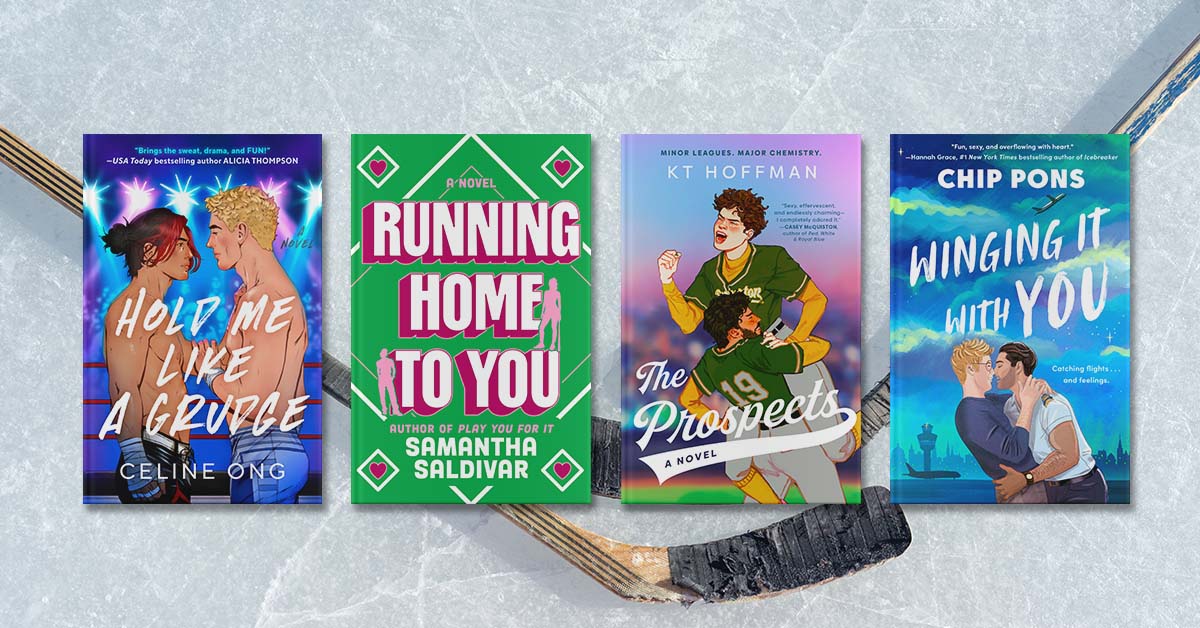Interviews
Coping and Creativity with Elizabeth Gilbert

During the COVID-19 pandemic, most of us are staying at home, adjusting to a very different life. Some of us are turning to art and journaling to express our anxieties or just to find joy during a very strange time. We turned to someone who literally wrote the book on creativity, Elizabeth Gilbert. Her book, Big Magic, is a joyful exploration of the artistic self.
Amy Brinker: Hello! Let’s start with mornings… you had a wonderful interview in The Cut a while ago about your morning routine. Are you still doing your meditation practice, do you still dance when you wake up? Has that been a constant for you in this time?
Elizabeth Gilbert: It has been. You know, it’s so funny. I think for me, I’ve just learned the hard way through my life that the more stressful and unsettled the outside circumstances are, the more important it is for me to keep to a routine.
So yeah, it’s actually been kind of a godsend that all of those practices were already in place, I feel like I’m really actually beginning to understand what spiritual practices are really for, especially meditation and centering prayer and journaling and all that stuff. It’s building the ark before the flood.
So, on a normal day, on a normal mundane day, what are you doing that for? Like what is your 30 minutes of meditation really about? But then a pandemic hits or there’s a death in the family or you lose your job or marriage ends. All of a sudden the world doesn’t feel mundane anymore, it feels like it’s raining hammers and then you’ve got this boat that you’ve built for yourself — these steady practices that create a through line, a continual sense of routine and a continual sense of connection to source.
AB: Making art can be comforting and stabilizing (for those who currently have the capacity for it). What about people who are not used to being creative or feel shame or embarrassment around creativity. What does it mean to express yourself if you don’t know how?
EG: I would suggest that you try to remember what you used to do when you were around the age of 9 that you really liked doing. I was really, really into drawing, when I was a kid, and then I stopped because other people were better. A lot of people can point to the moment they stopped creating and if you figure out what happened right before you stopped, it was usually a moment of shame.
Somebody said that you had a bad voice, somebody said that you were a stupid dancer. But up until somebody informed you that you needed to be ashamed of it, you really liked doing it. So, see if you can figure out when that was. See if you can figure out why that was. And most importantly, see if you can figure out what it was that you were doing before you got shamed and then do it again.
Lynda Barry (who is a McArthur Genius grant winner because she should be) spends a lot of time teaching art to people who haven’t made art since they were kids and it’s incredibly liberating. One of the things she pointed out is that if you haven’t drawn a picture since you were 8 or 9 years old, when you draw your first picture it’s going to look like an 8 or 9-year-old’s, because you’re actually are going to pick up exactly where you left off. So, I have a notebook full of sketches that look like a third grader did it because that’s kind of the last time I was ever drawing. Also, just understand that no one but you ever needs to see this. I don’t expect myself to be a great visual artist. I just remember that when I was a really hyped up anxious kid drawing and coloring made me feel relaxed.
What I’m really interested in right now in my life is the difference between doing things that feel good and doing things that make me feel well
Here’s the thing. I really want to stress that you don’t have to do any of this, especially if you’re on the front lines of this pandemic and of this crisis. And by front lines, I don’t just mean health care workers. I mean if you’re a parent with young children at home, you’re on the front lines. If you’re holed up with people who you don’t like and can’t get away from, you’re on the front lines. If you just lost your job, you’re on the front lines. There so many ways that this is affecting people in really hard ways, so if I come to you and say, “You should be doing crafts.”, you have the right to punch in the face anybody who says that. Or anyone saying, “here’s another thing that you should be doing” or anybody who is trying to craft-shame you.
AB: Craft-shaming! That’s a new one.
EG: Don’t let it happen. But all of that said, I will say that there is something about creating something with your hands that is incredibly neurologically relaxing. And this is why human beings spend so much time creating. It’s not just practical. It’s also really, really soothing to do it.
What generally happens in our culture is that first a few people get singled out as being talented and stars and then all the resources go into them and then everyone else is like, “Oh, you’re not a creative person,” which is why you hear people say. “I don’t have a creative bone in my body,” which is insane because we are the creative species. But the second thing that happens is that our culture has created shortcuts that we can do to not feel our anxiety. They are quicker and they’re also profitable for other people.
So shopping, and stimulants and sedatives and alcohol and drugs and nicotine and sex and all of these substances and activities that we do, usually starting around adolescence are a way to hot-wire our nervous systems so that we feel good. And so, what happens is that you become an adolescent and you find these other ways to do it. And that’s great. They actually do deliver a hit, but they also deliver pretty severe consequences on your pocketbook on your body and your self-esteem.
A friend of mine who is in 12-step recovery says, “If it’s not a man, it’s a martini. If it’s not a martini it’s a muffin. If it’s not a muffin it’s a MasterCard.” There’s always something that we can reach for to make us feel good. But what I’m really interested in right now in my life is the difference between doing things that feel good and doing things that make me feel well.
So, doing things that make me feel good — like impulse buying makes me feel good for a minute, like a martini makes me feel good. There are certain things that you can do but making creative work makes me feel well, and by well, I mean the quiet hum of well-being. I haven’t thought about my problems in 10 minutes. All the meditation practices and the dancing and the journaling and praying and all that that I do every day, I do it because it makes me feel well. And the more I can feel well, the more I can sustain and survive life on earth, especially right now.
AB: One thing that I’ve heard of recently is that people are just giving their friends PowerPoint presentations about something they’re just really interested in. And obviously you don’t have to be an expert, obviously you don’t have to know everything about it. It’s just something you’re interested in. What would you talk about if I asked you to give me a 10-minute presentation right now?
EG: I would give a presentation on a practice that I love to teach to people: how to learn how to speak to yourself lovingly. Twenty years ago, when I was going through my first divorce and a really horrible depression and period of great unhappiness, I was so lonely. And I was so longing to be held, and so longing to be reassured and longing to be just having somebody give devoted care to me. And there was nobody to do that.
So, I remember waking up in the middle of the night, pulling out my journal and deciding to write to myself as if I were the most loving person in the entire world communicating with me. All you have to do is write down everything you wish somebody else would say to you. If you could design the perfect partner or the perfect friend or the perfect mother, what would they say to you right now? Then you just write that, and you say it to yourself. I’ve done it now for 20 years and I reach out to that voice whenever I’m troubled.
My journaling practice every day is me reaching out to that voice of love. I will start my journal every day with the same three words, which is, “I need you,” and the very next three words come from love itself saying, “I’m right here,” and then I say whatever I’m troubled about, whatever I’m worried about, whoever I’m pissed off about. And then love just listens and then love responds as true love would, by generally speaking, not giving advice, which is a really good thing to know. True love doesn’t give advice.
One of my favorite spiritual teachers Byron Katie says advice-giving is always driven by panic or the panic of the person giving the advice. What love says to me, say like when the COVID thing started and I said I’m really, really frightened, she just listened. I always think of it as a she. And she just says, “I see that.” That’s normally the first thing she’ll say is, “I see that. I can see that you’re really upset and I want you to know that I’m right here with you and I’ve got you and I’m not going to let go of you and you can’t lose me.”
So, everything else can be lost. You can lose your job. People in your life might die. You can lose your stability. The Republic can collapse, like all sorts of things. The financial markets can be gone. “But I’ll be with you for the whole thing. So, wherever you end up, you’ll know that I will also be there in the same way that I have always been there.” And it’s just this incredibly calming reassuring voice that just says, “I’ve got you, I’m with you, you can’t lose me and you’re never alone.” Because those are things, generally speaking, those are the things we all want to hear. We want to hear somebody say, “I’ve got you. You can’t lose me. You can’t do anything wrong.
People have always used the arts to take a vacation from themselves and the world
And whenever I feel like I failed or I’ve made a mess of something, love always says to me, “I’m the relationship you can’t lose. The others can come and go, but I was with you before this person came into your life. I will be with you after they leave, you know, everybody else can come and go. I was with you at the moment of your birth, and you can’t do anything wrong as far as I’m concerned. You can’t do anything that will make me go away. You can’t.”
And I think of what the great spiritual teacher Ram Dass said of his spiritual teacher: “There was nothing I could do to convince Maharaji of my own corruption. He always, always, always thought that I was worthy of being loved.” And that’s the voice that I call on.
My voice of love knows everything I’ve ever done, knows all my horrible evil thoughts, knows everything and she’s still just — I can’t convince her of my own corruption. She just constantly just says, “I got you. I love you.” And she calls me sweetheart and honey, and the really cool thing about this practice is that it’s so easy to access, because like I said, all you have to do is write down the thing you wish somebody else would say. We all know what we wish that is.
Over the 20 years of doing this is, it’s changed the way I speak to myself internally because that voice has now become my internal voice. So, I don’t have the terrorist living in my head anymore telling me that I’m history’s greatest monster, which I had forever. The other thing is when I’m with people who are acting out or falling apart, I actually know how to be with them because I’ve learned how to be with myself when I’m acting out and falling apart. So that’s what I would do my 10 minutes — I think I just did my 10 minutes.
AB: That’s so actionable and so accessible to everybody. Can you just tell me a little bit about what escapism in art means to you right now?
EG: People have always used the arts to take a vacation from themselves and the world. And I put it in that order because the more important gift of being able to escape into art is to be able to take a vacation from yourself. You can shut the door and get away from the world. You can turn off the news and get away from the world.
You can’t — there’s nowhere to go to get away from your own mind and so humans have generously over the centuries and over the millennia used their creativity to make things that are so literally captivating that you get captivated into them and then you have a lovely little holiday from having to think about yourself. And that is the use of escapism and that’s totally what City of Girls is.
I unapologetically and with a great sense of celebration wrote and created and put that book into the world as pure escapism, and for me it was, I wrote that book in the aftermath of my partner’s death. I wanted to escape my own mind for a few hours a day and write about a glittering, fresh, giddy moment in history in New York City in 1940 — show girls, dancers, playboys, the theater world. And it worked for me.
The months that I spent working on that book every time I would dip into that world I would get to have a vacation from my grief and my own sorrow and so, I can honestly say the first person I tested City of Girls out on to see if it worked as escapism was myself. So, I could say like, “It works for me. It might work for you. Go ahead and give it a try.” I wanted to write a book that went down like a champagne cocktail and that I hope that it will do for others.



















